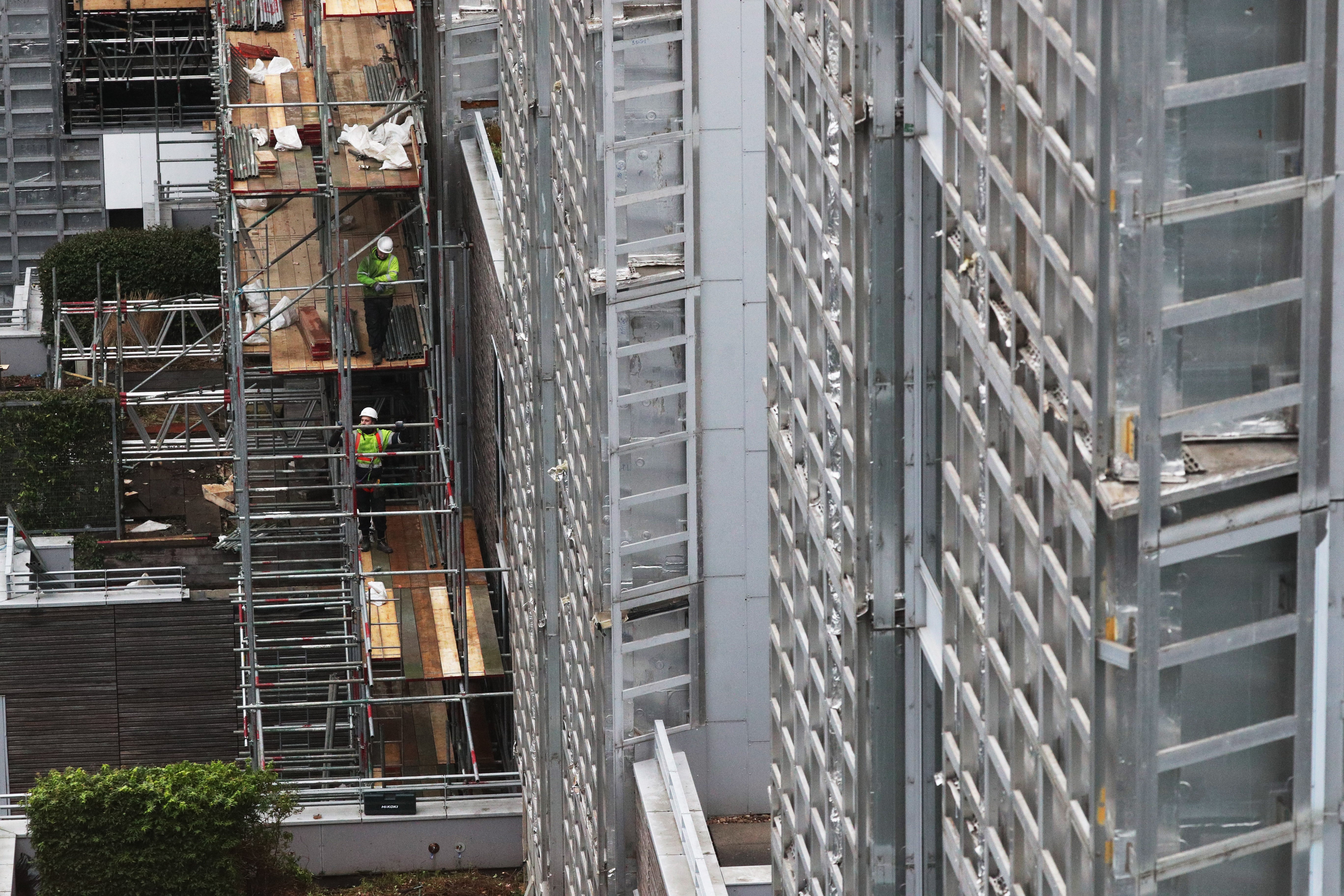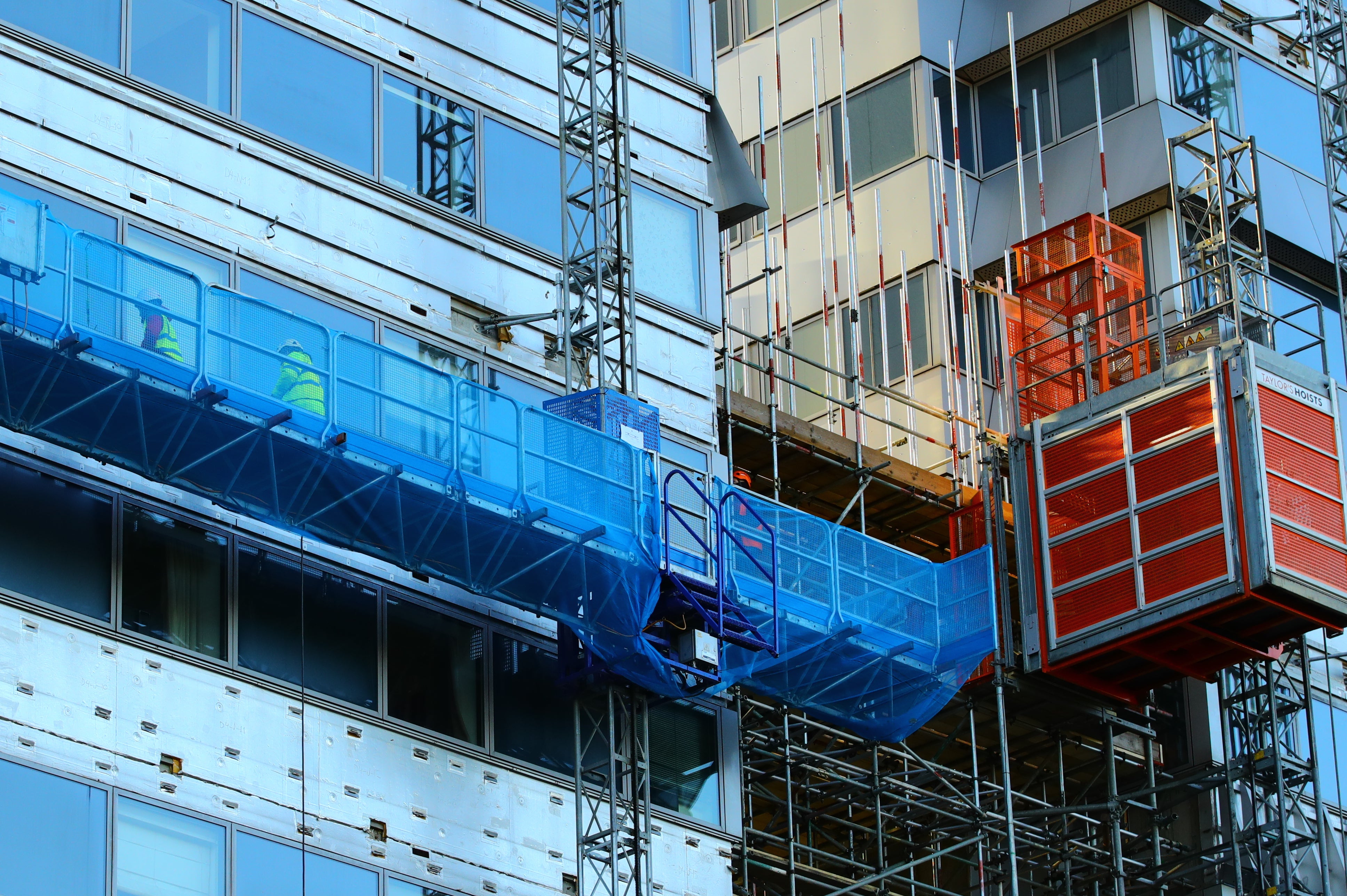Developers who refuse to help fix cladding issues may be blocked from housing market
New laws could see developers and manufacturers effectively blocked from the housing market if they do not help fix cladding safety issues

Your support helps us to tell the story
From reproductive rights to climate change to Big Tech, The Independent is on the ground when the story is developing. Whether it's investigating the financials of Elon Musk's pro-Trump PAC or producing our latest documentary, 'The A Word', which shines a light on the American women fighting for reproductive rights, we know how important it is to parse out the facts from the messaging.
At such a critical moment in US history, we need reporters on the ground. Your donation allows us to keep sending journalists to speak to both sides of the story.
The Independent is trusted by Americans across the entire political spectrum. And unlike many other quality news outlets, we choose not to lock Americans out of our reporting and analysis with paywalls. We believe quality journalism should be available to everyone, paid for by those who can afford it.
Your support makes all the difference.The government has outlined more detail on how it intends to make developers and manufacturers in the housing industry shoulder the costs of replacing dangerous cladding in a bid to protect leaseholders.
The Department for Levelling Up, Housing and Communities said the plans could see developers and manufacturers effectively blocked from the housing market if they do not help fix cladding safety issues.
And it said the changes would put into law a commitment to protect leaseholders living in medium or high-rise buildings from having to pay anything for the removal of unsafe cladding.
The government said that if the changes become law it will hugely reduce invoices that have been sent to leaseholders for taking down cladding, which in some cases have exceeded £100,000.
We cannot allow those who do not take building safety seriously to build homes in the future, and for those not willing to play their part they must face consequences
Outlining the plans, the government said it will go further to protect leaseholders by limiting how much they can be asked to pay for non-cladding costs such as charges for “waking watches” to patrol sites – with some building owners and developers set to pick up the cost.
The proposed changes, to be introduced through amendments to the Building Safety Bill currently making its way through parliament, will also allow building owners and landlords to take legal action against manufacturers who used defective products on a home that has since been found unfit for habitation, the government said, adding the power will stretch back 30 years and allow recovery where costs have already been paid out.
In a bid to ensure that manufacturers found guilty of misconduct are also charged to fix the problems they cause, the government said cost contribution orders would be able to be placed on manufacturers who have been successfully prosecuted under construction products regulations, requiring them to contribute financially to buildings requiring remediation.
It said the proposed changes to the Bill would also allow it to apply a proposed new building safety levy – paid by developers applying for building control approval for higher-risk residential buildings in England – to more developments.
The government hopes it will not have to use the powers and it wants responsible developers and manufacturers to operate freely.
The courts would also be given new powers to stop developers using shell companies which make it difficult to trace or identify who they are run by and so avoid responsibility.

Discussions with industry leaders on the issue of dangerous cladding are ongoing, the Government said, but added progress is being made.
Levelling Up Secretary Michael Gove said: “It is time to bring this scandal to an end, protect leaseholders and see the industry work together to deliver a solution.
“These measures will stop building owners passing all costs on to leaseholders and make sure any repairs are proportionate and necessary for their safety.
“All industry must play a part instead of continuing to profit whilst hardworking families struggle.
“We cannot allow those who do not take building safety seriously to build homes in the future, and for those not willing to play their part they must face consequences.”

Under the plans to reduce non-cladding costs for leaseholders, developers that still own a building over 11m that they built or refurbished – or landlords linked to an original developer – will be required to pay in full to fix historic building safety issues in their property. Building owners who are not linked to the developer but can afford to pay in full could also be required to put up the money.
A cap on leaseholder costs would then be in place for what the government described as the small number of cases where building owners do not have the resources to pay.
It said the cap would be set at similar levels to what is known as Florrie’s Law, which applies to some repairs to social housing – £10,000 for homes outside London and £15,000 for homes in the capital.
This aims to limit how much leaseholders can be asked to pay for non-cladding costs, including waking watch charges.
Any costs paid out by leaseholders over the past five years would count towards the cap which would protect leaseholders from paying any more, the government said, but added it will carry out further consultation before finalising the details.
The amendments to the Building Safety Bill are due to be debated in the House of Lords next week.
Subscribe to Independent Premium to bookmark this article
Want to bookmark your favourite articles and stories to read or reference later? Start your Independent Premium subscription today.